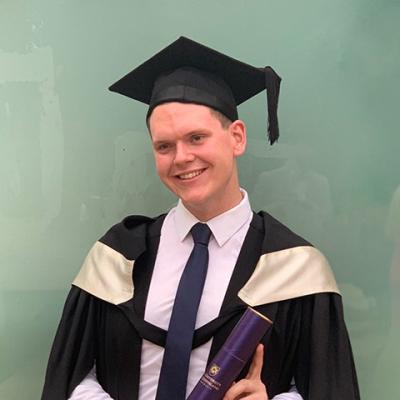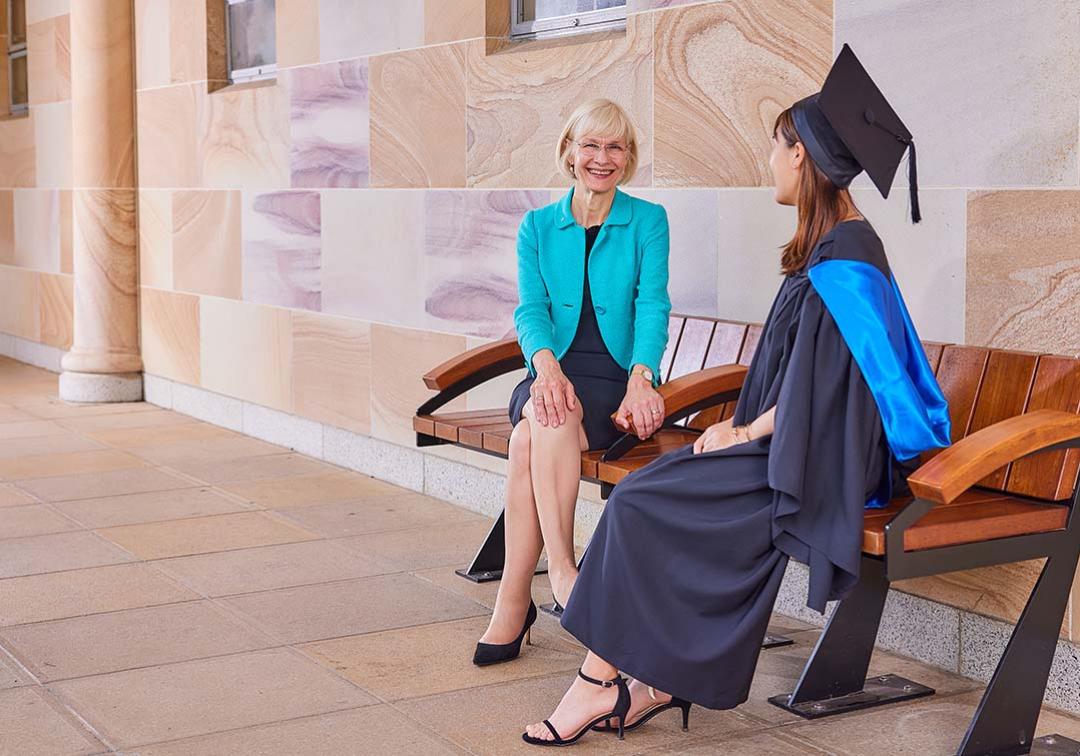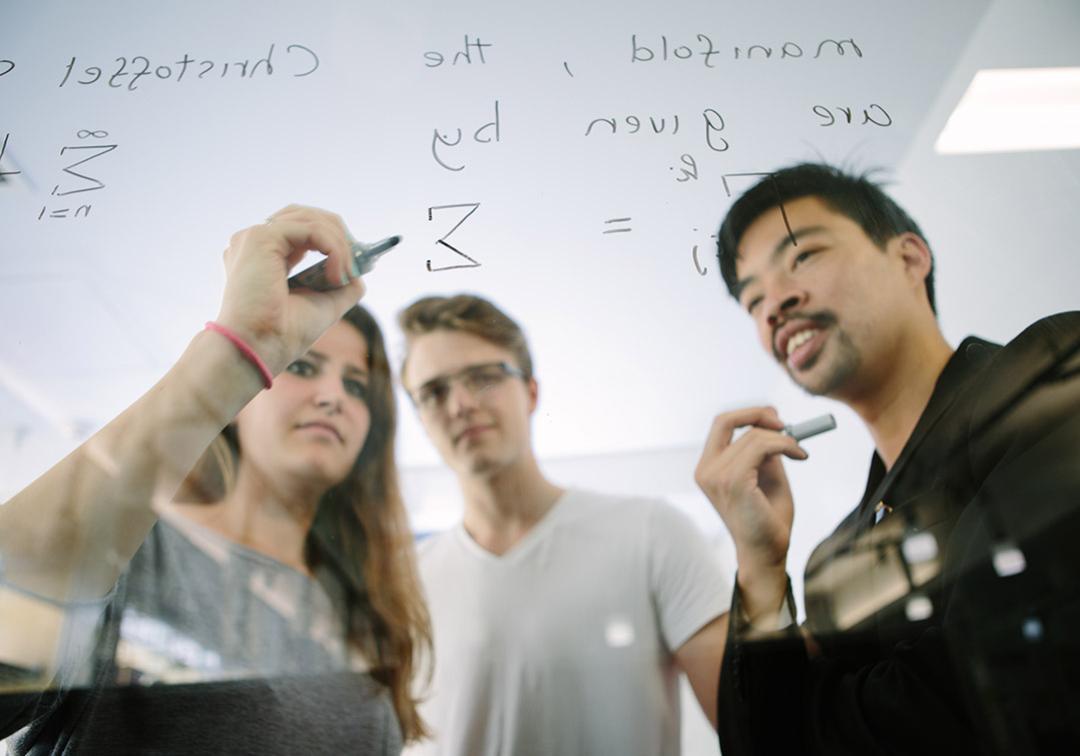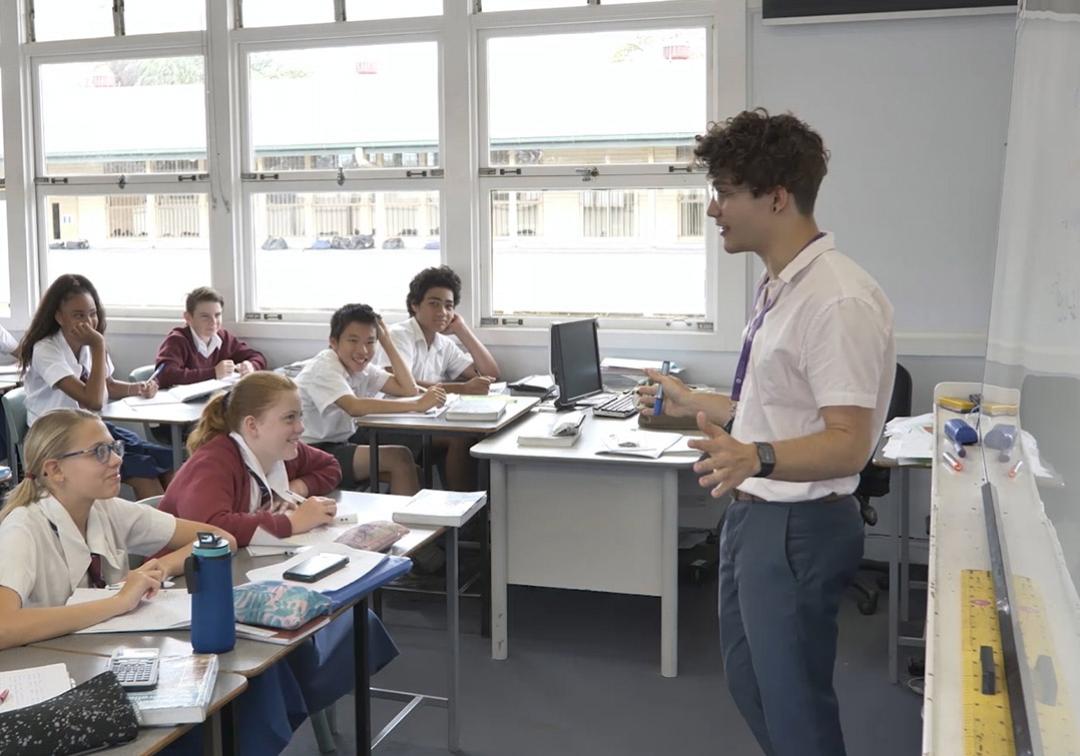
Bachelors of Mathematics / Education (Secondary)
Overview
Combine your passion for mathematics with the skills to inspire future generations in this engaging 4-year dual program.
This program offers the perfect balance of mathematics and education, preparing you to become a secondary school teacher while developing a deep understanding of modern mathematical concepts.
You'll gain a solid foundation in teaching, supported by research-backed methods that ensure you're ready for classroom leadership or training roles in business and industry.
Secondary school teachers are in demand worldwide, and this program equips you to step into that rewarding career.
The mathematics component covers a broad range of topics, from core areas like calculus and algebra to more specialised fields such as AI, machine learning, data optimisation and statistical analysis.
You’ll also explore real-world applications in coding, cryptology, bioinformatics and finance.
With guidance from some of Australia's leading mathematics educators, you’ll build advanced analytical and problem-solving skills that open doors across various fields.
This dual degree provides a practical, enjoyable path to a career where you can make a real difference in education and beyond.
Program highlights
- Specialise in one of 6 majors: Applied Mathematics, Mathematical Artificial Intelligence, Mathematical Physics, Optimisation and Operations Research, Pure Mathematics or Statistics.
- Be confident and job-ready with a minimum of 80 days of supervised and assessed professional experience.
- Graduate with high-level teaching ability and a wide range of mathematical skills, ready to excel in a challenging and rewarding career.
Majors
Tailor your studies to suit your goals. This program offers these options:
- Applied Mathematics
- Mathematical Artificial Intelligence
- Mathematical Physics
- Optimisation and Operations Research
How you'll learn
Your learning experiences are designed to best suit the learning outcomes of the courses you choose.
- Lectures
- Tutorials
- Work placements
- Online study
- Workshops
Placements and work experience
Students undertaking a Bachelor of Mathematics/Bachelor of Education (Secondary) dual program must complete a minimum of 80 days of supervised and assessed professional experience throughout the program.
Every effort is made to place students within a reasonable distance of their home base, but they can be expected to travel up to 90 minutes due to public transport connections and incur costs associated with travel and possible lost income over this period.
Students are generally placed at Ipswich, Brisbane, and southeast Queensland and are encouraged to explore the option of a rural placement. Financial assistance may be available to assist with travel and accommodation costs for rural placements.
Students are required to have a current Blue Card (Working with Children Check) before commencing practicum. Students can apply for a Blue Card through the School of Education and should do so three months before their practicum is due to commence. The Professional Experience Handbook for this program provides information about practicum and school experience requirements. Please visit the School of Education website to access required resources.
What you'll study
At UQ, degrees are called 'programs' and subjects are called 'courses'.
Career possibilities
Our programs prepare you for your first job and beyond. Depending on which major you choose, here are some of the careers you could be on your way to:
- Secondary school maths teacher
- Secondary school teacher
- Head of curriculum
- School principal
- Mathematics teacher
- Literacy and numeracy coach
Average annual salary range
Secondary School Teacher
seek.com.au
Average annual salary range
Mathematician
seek.com.au
Next steps after graduation
You’ll be eligible to apply for registration as a teacher with the Queensland College of Teachers, and to work as a school teacher in state and independent schools in Australia and worldwide.
Further study and experience can lead to roles as a head of department, principal, guidance officer, learning support teacher or student adviser.
Other graduates choose to work with non-school-based education providers (such as tutoring companies), government agencies or education advocacy organisations.
Professional memberships
When you graduate, you may be eligible for memberships with the following professional organisations. Contact the organisation to find out how to become a member.
- Queensland College of Teachers
Professional registration
When you graduate, you may be eligible for registration with the following professional organisations. Contact the organisation to find out how to register.
- Queensland College Of Teachers
Program accreditation
The Bachelors of Mathematics / Education (Secondary) is accredited by:
- Australian Institute For Teaching And School Leadership
Events
See all events
29 June - 6 July
Year 11 Queensland Chemistry Winter School

29 June
Queensland Biology Winter School, Year 12

1 July
International Baccalaureate Research Skills Program
Stories
See all storiesStories
See all stories
UQ people
Education without borders: Claudia’s vision for inclusive education starts at UQ
2-minute read
Entry requirements
Prerequisites
- General English subject (Units 3 & 4, C);
- Mathematical Methods (Units 3 & 4, C).
Prerequisites
- General English subject (Units 3 & 4, C);
- Mathematical Methods (Units 3 & 4, C).
Entry score threshold
| ATAR / Rank | IB |
|---|---|
| 92 | 36.75 |
These are the lowest adjusted scores we made an offer to in Semester 1, 2025. Entry scores are based on the most recent Semester 1 intake and are updated in April each year. Meeting the entry score threshold doesn't guarantee admission.
Guarantee your place at UQ: If you meet our guaranteed minimum ATAR you could secure an offer for your preferred program.
English language requirements
IELTS score of 7.5 overall; speaking 8; listening 8, reading 7, writing 7. For other English Language Proficiency Tests and Scores approved for UQ.
TOEFL iBT (Paper Edition), PTE Academic, BE, CES, and OET are not accepted.
There are other ways to meet the English language requirements. For some programs, additional conditions apply.
Inherent requirements
To complete this degree, you have to meet its inherent requirements by demonstrating essential skills and attributes. Read the inherent requirements before you apply.
Student visas
International students who are accepted into full-time study in the Bachelors of Mathematics / Education (Secondary) are eligible to apply for an Australian student visa (subclass 500).
There are a number of requirements you must satisfy before a visa is granted, including the Genuine Student (GS) requirement.
Entry score range
This table shows the range of entry scores for recent secondary students offered a place in the B Mathematics/BEd(Sec) for Semester 1, 2025
| Without adjustments | With adjustments | |
|---|---|---|
| Highest | 99.75 | 99.95 |
| Median | 95.4 | 99.8 |
| Lowest | 88.1 | 92.1 |
Who you'll study with
Here's a snapshot of our student intake for this program in Semester 1, 2025:
| Applicant background | Number of students | Percentage of all students |
|---|---|---|
(A) Higher education study | <5 | <5 |
(B) Vocational Education and Training (VET) study | 0 | 0% |
(C) Work and life experience | 0 | 0% |
| (D) Recent secondary education | ||
| 9 | 60% |
| 0 | 0% |
| 0 | 0% |
International students | <5 | <5 |
Total | 15 | 100% |
"<5" — The number of students is less than 5.
N/A — Students not accepted in this category.
N/P — Not published. The number is hidden to protect the privacy of students in other cells.
Need help meeting the entry requirements?
Additional application information
All students are required to successfully meet the Literacy and Numeracy Test for Initial Teacher Education (LANTITE) standards prior to graduation. Please contact the School of Education for further details (education@uq.edu.au) or visit the School of Education office. For more information on the test including sample tests, indicative fees, testing institutions and registration information, please visit the School of Education LANTITE website and the Australian Council for Educational Research (ACER) website.
Additional application information
All students are required to successfully meet the Literacy and Numeracy Test for Initial Teacher Education (LANTITE) standards prior to graduation. Please contact the School of Education for further details (education@uq.edu.au) or visit the School of Education office. For more information on the test including sample tests, indicative fees, testing institutions and registration information, please visit the School of Education LANTITE website and the Australian Council for Educational Research (ACER) website.
Majors
Majors
Tailor your studies to suit your goals. This program offers these options:
Majors
Tailor your studies to suit your goals. This program offers these options:
Fees and Scholarships
Indicative annual fee
Approximate yearly cost of tuition (16 units). Your fees will vary according to your selected courses and study load. Fees are reviewed each year and may increase.
$5,010
2026
Approximate yearly cost of tuition (16 units). Your fees will vary according to your study load. Fees are reviewed each year and may increase.
AUD $54,096
2026
Additional costs
- There may be additional course costs associated with travel or materials.
- Students are expected to fund travel and living expenses associated with placements, some of which may be outside the Brisbane metropolitan area.
- All students are required to successfully meet the Literacy and Numeracy Test for Initial Teacher Education (LANTITE) standards prior to graduation.
- Students are responsible for the cost of the LANTITE (approximately $196 or $98 per test). ACER website (https://teacheredtest.acer.edu.au) lists current fees.
- Please contact the School of Education for further details (education@uq.edu.au) or visit the School of Education office.
- For more information on the LANTITE tests, including sample tests and registration information, please visit the Australian Council for Educational Research website: https://teacheredtest.acer.edu.au
- Students are responsible for the cost of transportation and accommodation to attend residential schools or practicals.
Government assistance
Financial aid
As an international student, you might be eligible for financial aid – either from your home country, or from the Australian Government.
HECS-HELP
Domestic places in the Bachelors of Mathematics / Education (Secondary) are Commonwealth supported, as long as you meet all Commonwealth supported place eligibility requirements.
This means the cost of your education is shared between you and the Australian Government. Instead of tuition fees, Commonwealth supported students pay what are called student contribution amounts.
If you have a Commonwealth supported place, you may also be eligible for HECS-HELP. This is an Australian Government loan scheme to assist eligible students with the cost of their student contribution amounts.
Centrelink support
The Australian Government offers a number of income-support payments to eligible Australian university students.
Scholarships
You may be eligible for more than 100 scholarships, including:
How to apply
Applying online
If your senior schooling is from outside Australia, you can submit your application to UQ. Or, if you prefer, you can use an approved UQ agent near you.
The program code for the Bachelors of Mathematics / Education (Secondary) is 2501.
How to apply for undergraduate study
If your senior schooling is from Australia
Submit your application to the Queensland Tertiary Admissions Centre if you're an international student who is currently studying:
- Australian Year 12 (in Australia or another country), or
- the International Baccalaureate in Australia.
The QTAC code for the Bachelors of Mathematics / Education (Secondary) is 714801.
Applying through QTAC
All domestic applications should be submitted to the Queensland Tertiary Admissions Centre (QTAC).
The QTAC code for the Bachelors of Mathematics / Education (Secondary) is 714801.
Important dates
If you’re studying Year 12 in Australia, go to the QTAC website to check the closing date for this program.
If you’re applying to UQ, the closing date for this program is:
- To commence study in semester 1 - November 30 of the previous year.
Visa processing times vary. Apply and accept your offer as early as you can.
To learn more about UQ dates, including semester start dates, view the Academic Calendar.
Important dates
To check the closing date for this program, go to the QTAC website.
To learn more about UQ dates, including semester start dates, view the Academic Calendar.
Admissions schemes
Applying to university can be both exciting and daunting, which is why we’ve tried to make the process as simple as we can.
We have several schemes in place to improve your chances of getting a place at UQ.
Pathway options
A rank or score doesn’t determine your potential.
If you're not offered a place in your first-choice program – or if you don't meet the entry requirements – you still have a number of options.
Aboriginal and Torres Strait Islander applicants
For support with applying – or if you have any questions about university life – get in touch with our Aboriginal and Torres Strait Islander Studies (ATSIS) Unit.
Explore other programs
Express yourself. And your interest.
They say choosing a degree is hard, which is why we've made it easy. Register your interest and we'll send you everything you need to know about applying to UQ.






